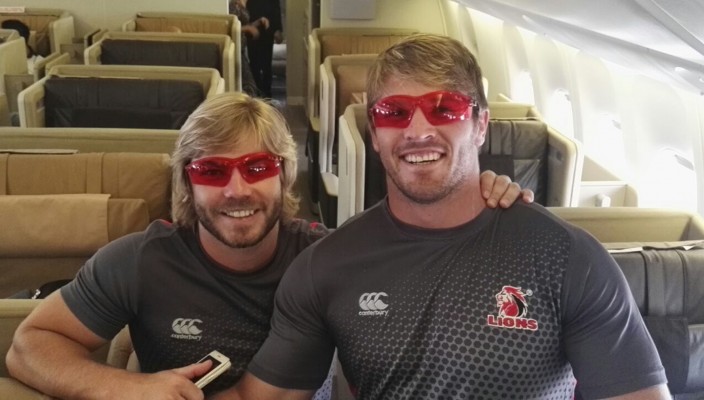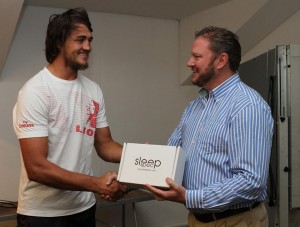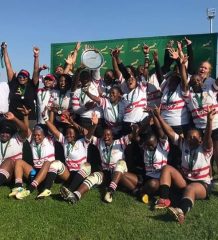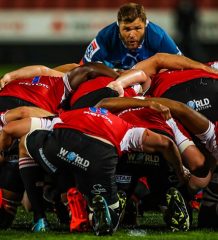GOLDEN LIONS BENEFIT FROM A GOOD NIGHT’S SLEEP
Reigning Currie Cup Champs and Rugby Super League hopefuls, the Golden Lions will be getting a bit of help from science this year as they embark on the away leg of their campaign. As they travel to Japan for their first Super Rugby match of the season, the team will be using a pair of odd looking red-lensed glasses to help them cope with the effects of jetlag – an issue which often affects the performance of South African sportsmen when they travel internationally.
‘It is tough for our local teams when the travel across to Australia, New Zealand and now Japan,’ says Golden Lions Team Physician Dr Rob Collins. ‘They often arrive only a day before a game and the effects of jetlag are difficult to manage. Sleeping tablets help but can sometimes leave you drowsy and lacking energy, as they take a while to work out the system after waking up. Furthermore at this level of the game, rest and sleep at the right time and in the right quantity is critical to performance.’
The SleepSpec are a pair of glasses with amber lenses developed Dr Rob Daniel, a specialist ophthalmologist with training in human physiology and neuroscience. Daniel has researched the human sleep control system and by combining the latest scientific research, his understanding of neurophysiology and his understanding of how the eye processes light, he was able to make the connection between light and the process of sleeping and waking.
‘Our body clock is controlled by something called the circadian rhythm,’ explains Daniel. ‘This is the 24 hour cycle of day and night which controls our sleep patterns and is adapted to the earth’s natural rhythm of day and night.’
At night, as the sun sets the body produces melatonin, commonly known as the sleep hormone which is needed to prepare the body to sleep. When the sun rises, light – in particular blue light – increases stopping the production of melatonin, causing the body to wake up.
‘Nowadays, however artificial light from lamps and particularly from electronic devices, means that the brain struggles to distinguish the change from day to night, melatonin production is suppressed and so our bodies’ are unable to move effectively into sleep mode,’ says Daniel.
The same thing happens as one travels across time zones. The natural circadian rhythm is disturbed – the sleep-wake pattern is upset, as are the rhythms for eating and working. Until all these factors are able to respond properly to the new environment we experience jet-lag. This is not ideal for sportsmen who need to be able to perform at their physical best immediately.
The SleepSpec works by filtering out blue light and allowing the body to produce melatonin and therefore prepare for sleep regardless of the actual time of the day.
‘One simply has to wear the SleepSpec for a minimum of two hours before wanting to go to sleep,’ explains Daniel. ‘This allows for sufficient melatonin production to take place and provided the room is completely dark and there are no sources of blue light the body’s natural sleep pattern will take place.’
Furthermore melatonin is the body’s most powerful anti-oxidant and performs the important function of ridding all cells of free radicals and other toxins. Therefore good quality sleep is crucial for the health and of all athletes and will greatly boost performance and health.
‘We are very pleased to use the SleepSpecs as a new technology, which will help with sleep and recovery. The specs will also be very useful in managing the many time zone changes needed in Super Rugby this year, especially with us only being in Japan for four days and then moving directly onto New Zealand for two weeks, with a one week return trip to Argentina later in the year,’ says Collins.
Related Posts
« Super Rugby preview: DHL Stormers vs Vodacom Bulls Toyota Cheetahs team to take on the Jaguares »




















